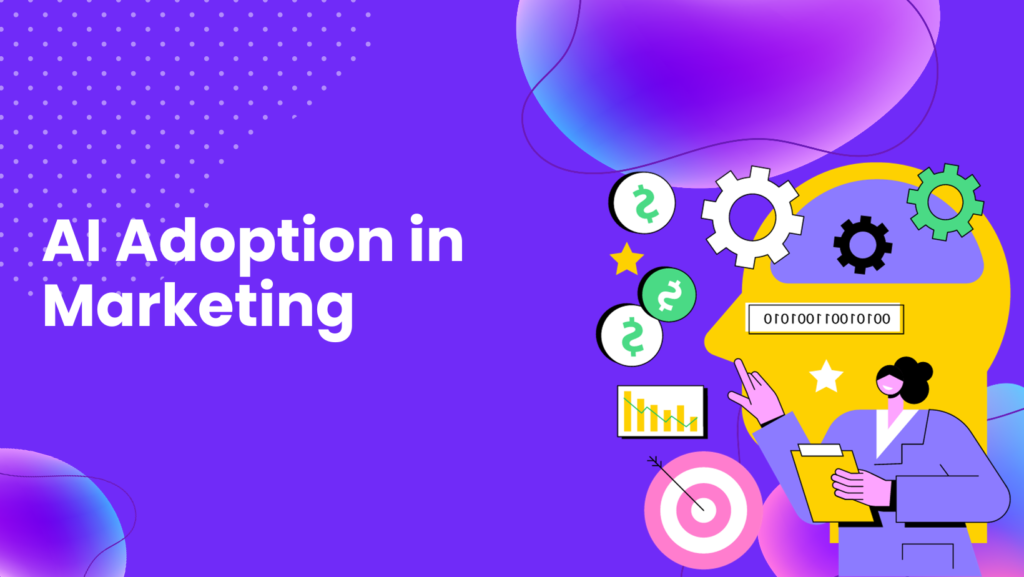
Through a recent survey sent to our customers, we delved into the current trends, challenges, and opportunities surrounding the integration of artificial intelligence in marketing efforts. The aim was to unravel the ways in which businesses are harnessing AI’s potential and to shed light on the underlying reasons for both its adoption and the hesitancy exhibited by some. The results provide an insightful view into the present state of AI utilization in marketing, serving as a compass guiding us through the dynamic realm of modern business strategies.
The integration of AI technologies has become a pivotal force in reshaping strategies and approaches. Our recent survey sheds light on the current landscape of AI adoption in marketing efforts, revealing intriguing insights into how companies are leveraging this cutting-edge technology and why some remain hesitant.
The survey findings paint a diverse picture. While 21% of respondents have integrated AI into their marketing strategies, a significant 39% utilize AI for selective aspects, yet not extensively. Furthermore, 23% are in the exploration phase, contemplating AI’s potential benefits, while a notable 17% have firmly decided against incorporating AI into their marketing roadmap at this point in time.
Key AI Applications in Marketing:
Personalization and Customer Insights: AI empowers marketers to delve deeper into customer behaviors and preferences, enabling hyper-personalized campaigns. By analyzing vast datasets, AI helps in segmenting audiences, predicting consumer behaviors, and delivering tailored content or products.
Optimized Advertising: AI-driven algorithms aid in targeted ad placements and optimize bidding strategies in real-time, thereby enhancing ad performance and ROI.
Chatbots and Customer Service: AI-driven chatbots offer instant and personalized customer support, handling queries efficiently, and providing round-the-clock assistance.
Content Creation and Curation: AI algorithms assist in content generation, from automating email campaigns to creating engaging social media posts, thus streamlining content creation processes.
Reasons for Hesitancy:
Despite the evident benefits, some companies remain cautious about AI integration in marketing. Hesitancy may stem from various factors:
Resource Constraints: Implementing AI necessitates substantial financial and technological resources, posing a barrier for smaller companies or those with limited budgets.
Data Privacy Concerns: With increased data-driven marketing, concerns regarding data privacy and ethical use of customer information arise, leading some to approach AI adoption cautiously.
Lack of Understanding and Expertise: Understanding AI’s intricacies and finding skilled personnel proficient in AI implementation can pose challenges for many companies.
Fear of Dependency: There might be a fear of over-reliance on AI or the technology not delivering the anticipated outcomes, leading to a reluctance to fully embrace it.
The survey results offer a comprehensive view of the current state of AI adoption in marketing, showcasing both the strides taken and the hurdles that companies navigate. As the landscape continues to evolve, understanding the pivotal role of AI in marketing will be imperative for companies aiming to stay competitive in the dynamic market.







